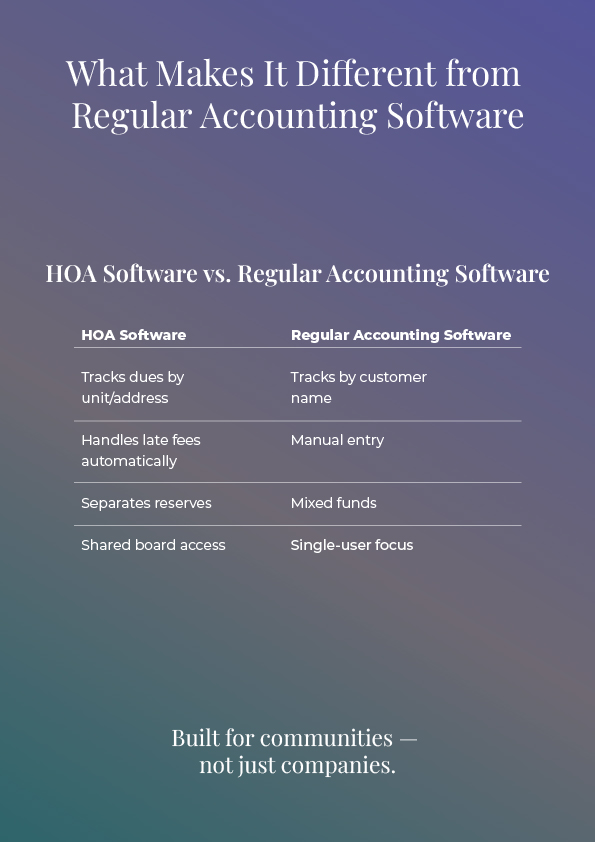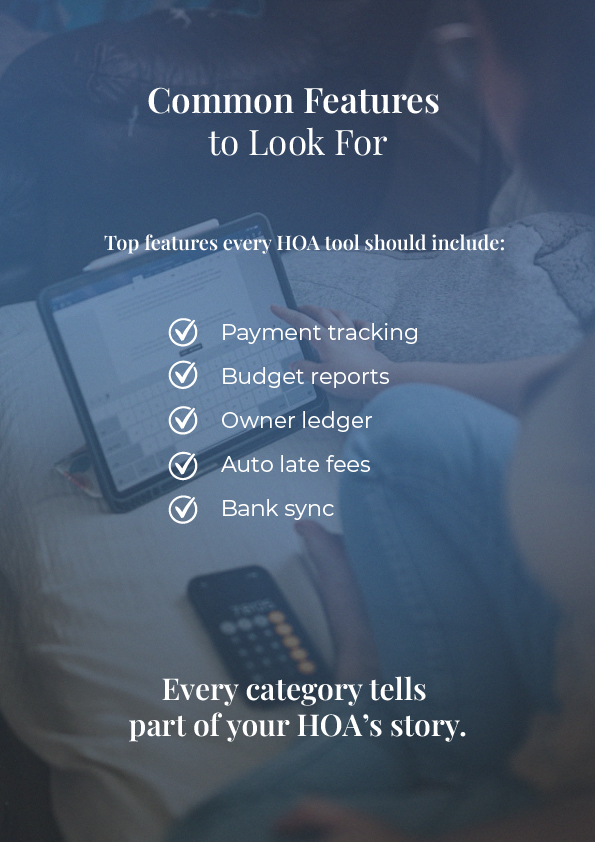So, What Is HOA Accounting Software?
HOA accounting software tracks the funds that run a community. It records homeowner payments and shows which bills still need attention. It keeps reserve funds separate from everyday spending. It creates reports that make sense. A good setup turns chaos into clarity. The board gets a clear view of spend and income. Overdue items are obvious. When totals match people relax.
What It Actually Does (in Plain English)
Think of HOA accounting software as the community’s financial dashboard. It shows the board where the money goes and helps stop problems before they grow.
The basics
- Tracks who’s paid and who hasn’t
- Records every bill and vendor payment
- Handles annual budgets without the guesswork
- Builds simple reports for board meetings
- Keeps reserve funds separate from daily expenses
No more Excel tabs from five years ago. No more late-night number crunching. This software holds everything in one place, where the whole board can see it.
When dues come in, the system logs them. When the landscaper sends an invoice, it tracks that too. If the community needs a new roof in five years, the reserves page shows if you’re on track.
Monthly reports break down the numbers in plain English. You’ll see trends, red flags, and gaps without digging. It’s not about making finance fun. It’s about making it clear.
The software also helps plan ahead. You can check your budget in real time and adjust before things go sideways. You don’t need to wait for a year-end surprise.
That said, software can’t run things on its own. Someone still needs to manage the chart of accounts and keep the categories clean. That’s where partners like SSL come in. We help boards get set up and stay on course.
What Makes It Different from Regular Accounting Software?

Plenty of boards start out in QuickBooks or Xero before realizing it’s not built for how they work.
HOA software tracks dues by unit or address, not just by customer name. It runs on a schedule, applying late fees if needed. It also separates reserve funds from day-to-day accounts, which helps boards avoid costly mistakes.
SSL helps boards switch to software that fits how they actually work. One community we worked with had been using a spreadsheet to track payments. The treasurer had to send manual reminders, one by one. After we moved them to a system with automatic dues tracking, late payments dropped by 30% in three months.
The best HOA software comes with tools built for groups. You can set up board access, control permissions, and share reports without printing anything. It shows where the money goes, who has access, and how you’re doing against budget.
Most boards try to bolt these features together. We help them stop guessing and choose something built for the job.

